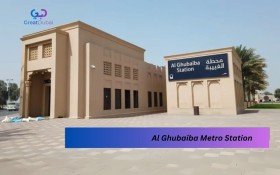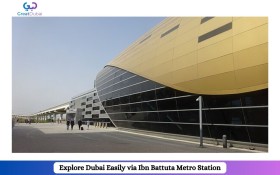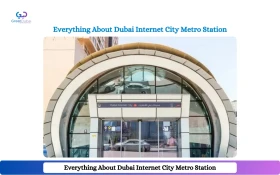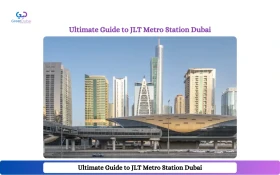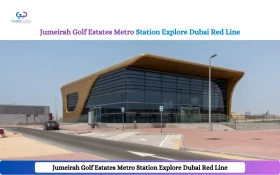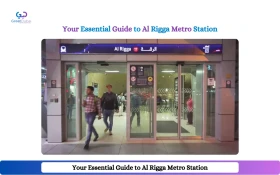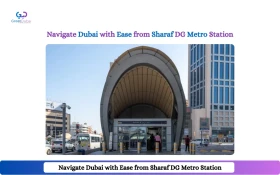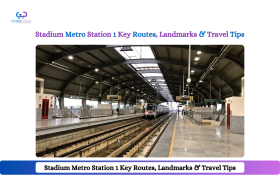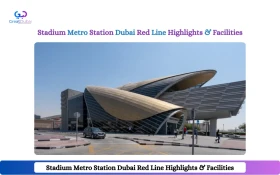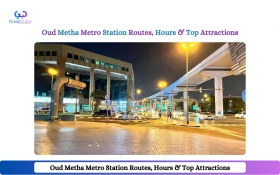Ramadan activities and experiences in Dubai
The ninth month of the Islamic calendar, Ramadan, is the month of sacrifice, giving, and—most importantly—fasting. It is regarded as the holiest month of them all. In accordance with lunar observations, it lasts for 29 or 30 days. In Dubai, the fast-paced routine slows down during Ramadan, bringing the city's traditional conservative Muslim traditions to the fore. The number of business hours is shortened, and the nightlife is outstanding. For travelers visiting Dubai during Ramadan, Great Dubai provides a list of dos and don'ts. Ramadan in Dubai. The following are some considerations to make while in Dubai for Ramadan: What to Do in Dubai While Fasting
- Is Ramadan a suitable time to travel to Dubai?
- What are the Ramadan regulations in Dubai?
- Is it permitted to dine in Dubai while it is Ramadan?
- During Ramadan, may I wear shorts in Dubai?
- During Ramadan, are eateries open in Dubai?
- Things to Know During Ramadan in Dubai
A Typical Dubai Ramadan Day
The entire city slows down during this holy month from its fast-paced routine to catch its breath. It fully hibernates after releasing all the tension that comes with managing a massively successful business like Dubai.
The Suhoor Meal
Muslims awaken in their homes and hotels just before dawn in groggy harmony. Together, they wash up and say a prayer. After eating the dawn meal, fasting during Ramadan in Dubai starts. Muslims abstain from eating and drinking during the fasting period, even water (from dawn to dusk). Smoking and eating are prohibited at this time. While Suhoor is often consumed with family on weekends, most Dubai residents choose to eat a light meal in one of the restaurants or Suhoor tents that have been set up, especially for the occasion. Muslims are prepared to break their fast until the Iftar meal after the Fajr prayer, which follows Suhoor. (After Maghrib prayer).
The Fast during the Day – Siyam
The Arabic word "Siyam" means "to refrain," which is appropriate given that every Muslim abstains from all forms of conduct between the hours of dawn and dusk. Physical restraint comes in the form of not eating, drinking, or smoking, but Ramadan's limits go further. In other words, this holy month has a deeper spiritual significance since it encourages individuals to abstain from negative thoughts, bad behavior, and inappropriate speech. Siyam is a method of purifying oneself of all types of impurities and concentrating one's emotional condition on declaring atonement for crimes committed and expressing appreciation to God. The Muslim puts himself in the position of others who are less fortunate by fasting the entire day. Muslims give so much to charity throughout Ramadan because of this.
The Iftar Meal
The announcement of Iftar and the end of the day's fast are marked by the sound of cannons. Muslims break their fast with a drink of water and a few dates as they refuel their energy and restore the priceless minerals they lost throughout the day. Homes and restaurants are lit and adorned. To break the day's fast, delicious feasts are set up in beautiful tents all across the city.
Dos during Ramadan
It's fine to visit Dubai during Ramadan. The city doesn't stop operating. You just need to follow a few rules and laws! During Ramadan, Muslims are not permitted to consume food, beverages, or tobacco between sunrise and sundown. The same Ramadan regulations apply when you are in Dubai. Although drinking alcohol is not prohibited, it is preferable to do it quietly in your hotel room if you do so. Never be seen drinking any type of alcohol outside.
Don’ts during Ramadan
During Ramadan, dress codes are particularly formal. Women are expected to keep their knees and shoulders covered. Women should always carry a shawl or cover-up with them so they can cover their shoulders or hips as necessary. Men must wear full-length pants in public, and shorts—unless they are at least knee-length—are only permitted on beaches. If you break this rule during Ramadan, be prepared for awkward looks and possibly even a fine. Between sunrise and dusk, avoid eating, drinking, smoking, and even chewing gum. Tourists are also subject to this rule. Therefore, it is essential to abide by this rule when you are in public. You're not used to fasting, so plan ahead and have some food in your room so you can make quick lunches. Restaurants won't serve lunch until after the Iftar meal, so keep that in mind. You risk penalties or possibly jail time if you violate the fasting law in public. Bars don't open until after sundown or before 8 o'clock. If clubs are open throughout Ramadan, they will be quiet. However, once the sun has set, you can have a drink in a bar.
What to Do in Dubai during Ramadan Visit a Mosque
Visit a mosque during Ramadan to learn about the festival's religious significance and what it means to Dubai's Muslim community. You are welcome to go to the Jumeirah Mosque, for instance, to learn how Muslims use Ramadan to reflect on their deeds from the previous year and to physically, emotionally, and psychologically purify themselves. You are welcome to take part in one of the many educational mosque visits led by the Sheikh Mohammed Center for Cultural Knowledge to obtain a deeper spiritual understanding of Ramadan. This primarily entails seeing the venerable Jumeirah Mosque. Don't forget to go to Abu Dhabi's Sheikh Zayed Grand Mosque as well.
Attend the Iftar Meal
When Muslims break their fast in the evening, enjoy the Iftar meal. All hotels provide this supper after dusk. Enjoy traditional Arabic and Emirati dishes including rice with slow-cooked meats and dates. You may join Muslims in celebrating Iftar each evening with a shisha pipe, cups of coffee, and a feast for the gods by visiting the grand Iftar tents set up at coastal hotels like the Jumeirah Beach Hotel and the Atlantis.
Take Part in Global Village's Ramadan Nights!
There is no need to introduce Global Village. It is the most popular seasonal attraction in the area, and this season is more special because a number of fascinating programs have been introduced to honor Ramadan. The finest feature is that it enables you to take part in various cultures' Ramadan customs. Of course, you shouldn't miss the Ramadan Nights here, which are brimming with food, shopping, and entertainment possibilities.
Benefit from Dubai's more tranquil side.
The city is largely deserted during Ramadan. You may travel the city at will without having to deal with crowds because there are so many taxi cabs and other transportation alternatives available right now. It is without a doubt the least "touristy" month in Dubai. Due to the lack of crowds, there won't be any queues at popular sites, and the malls will be open. Accept this: due to how empty the city is during Ramadan, acquiring tickets to the Burj Khalifa is actually a snap! The best time to visit Dubai is right now if you want to avoid the crowds of tourists and ex-pats that are usually present.
Enjoy the best of Dubai on a budget!
Even luxury hotels are offered fantastic savings during Ramadan because the city is nearly empty. Budgeting for a trip to Dubai has never been simpler! You can truly save money while traveling to Dubai thanks to the amazing Ramadan tourist discounts at hotels, malls, attractions, and even public transportation. Even Iftar and Suhoor meals are included in some of the top hotels' special Dubai Ramadan packages.
Dubai Tours during Ramadan
Isn't it wonderful that you can enjoy the warmth and tranquility of Dubai during Ramadan while still seeing the largest tower in the world and other top attractions? Compared to the busiest time of the year, this month is less crowded, hassle-free, and relaxed. As a result, it is relatively affordable and simple to climb the Burj Khalifa, play in theme parks, and stay in upscale hotels. The following are some of the top Ramadan tours in Dubai:
- Burj Khalifa
- IMG Worlds of Adventure
- Dubai Palm Cruise Tour
- Adventure Water Park
- Dinner Cruise
- Dubai Parks and Resorts
- Desert Safari Camel riding & BBQ Dinner
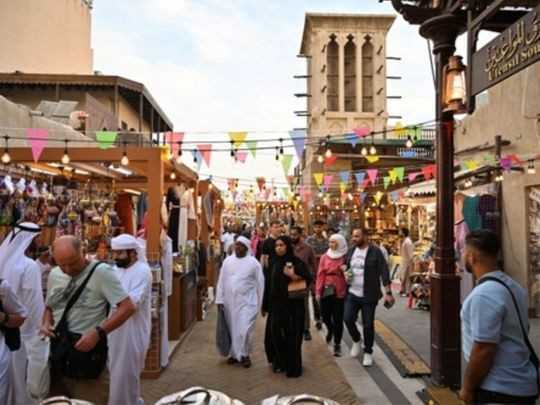

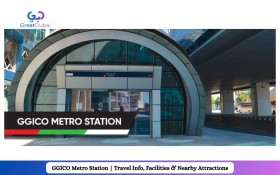
![Top Reasons To Have SEO Plan For Every Dubai Business [2025 Update]](/thumnails/blog/2024/11/1732278589.jpg)
